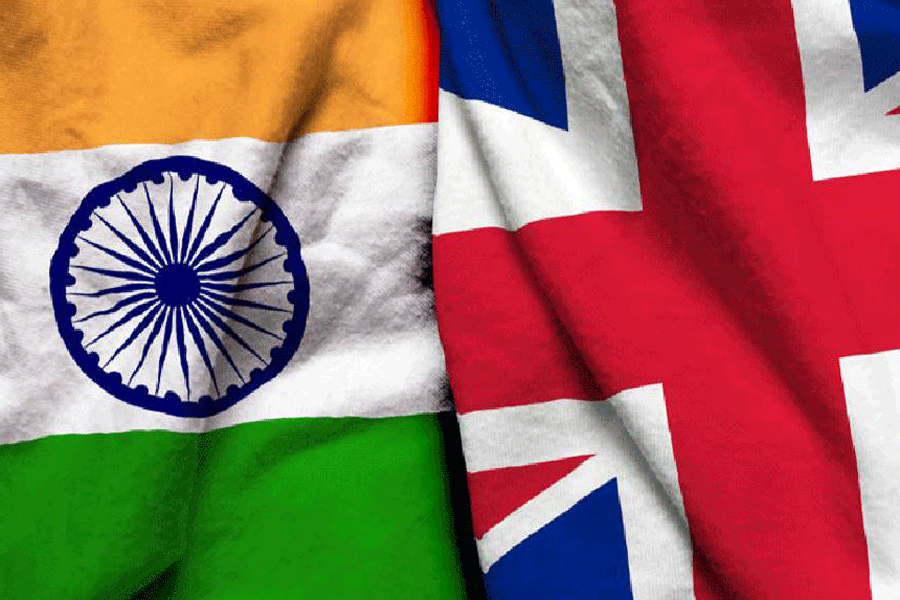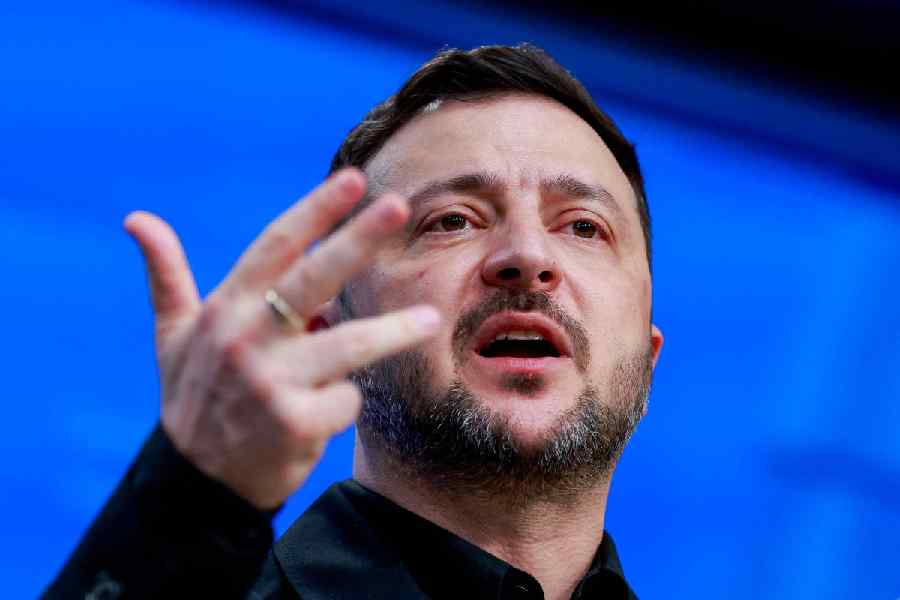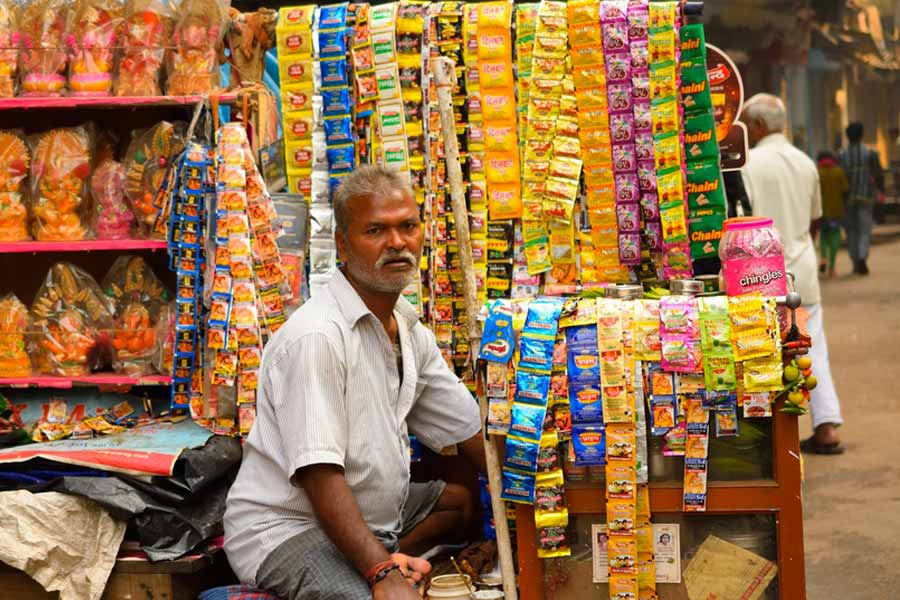India and the UK look to be on the cusp of a landmark free trade agreement with 90 per cent of the deal already negotiated and both governments eager to wrap up a treaty by year-end.
Finance minister Nirmala Sitharaman held talks in London on the trade agreement with her British counterpart Rachel Reeves. Sitharaman also met British Prime Minister Keir Starmer. Sitharaman and Reeves were the co-chairs of the 13th Economic and Financial Dialogue held in London.
Key takeaways included support for internationalisation of the rupee, stronger financial services trade and cooperation and UK asset managers keen to help fund Indian infrastructure projects.
The push to sign a free trade deal comes amid what the two countries described in a statement as a “changing world trade order”. US President Donald Trump’s embrace of aggressive protectionist tariff policies is shaking up old alliances and making it all the more urgent for countries like India and the UK to diversify and secure new trading partnerships.
“Everyone’s scrambling to recalibrate,” said one British official close to the talks.
One of the thorniest issues still on the table involve short-term business mobility visas. India wants smoother access for skilled professionals to work for short durations in the UK – a recurring sticking point in these negotiations.
Ahead of the high-level talks, UK negotiators briefed senior business leaders, informing them that 90 per cent of the hurdles had been cleared. Remaining issues include tariff cuts on Scotch whisky and automobile imports – long-standing bones of contention.
India imposes a massive 150 per cent in customs and other duties on Scotch whisky, which has irked British negotiators for years -- though the UK may be willing to go easy on the scotch whisky issue in order to ensure that the deal goes through smoothly.
But New Delhi recently made a surprise offer to cut tariffs on US Bourbon whiskey from 150 per cent to 50 per cent – a preemptive move under pressure from Trump. That same concession may now be extended to Scotch whisky.
The stakes are high: India is the world’s biggest consumer of Scotch by volume, and fifth by value. For the UK, this makes whisky a critical export. Tariff talks also extend to automobiles and pharmaceuticals. If India is willing to match US-related trade terms in areas like pharma and cars for parity, as hinted in the UK talks, it could suggest other concessions.
Another tricky issue is social security. India has been seeking a system where short-term Indian workers in the UK can get refunds on national insurance contributions which are deducted every month from their salaries. These deductions currently go unreimbursed. This has been a consistent ask in previous rounds of talks.
The UK, meanwhile, is pushing hard on the investment treaty component, hoping to secure strong protections for British investors – particularly in the financial services sector.
According to a joint statement issued after the dialogue, both sides affirmed their shared commitment to accelerating work on the Free Trade Agreement (FTA) and the Bilateral Investment Treaty (BIT), with a view to strengthening economic ties amid shifting global winds.
The investment treaty is crucial for the British financial services sector because it offers legal protections and investor confidence for UK firms putting money into India’s fast-growing but still complex market.
“The partnership can support the Industrial Strategy’s priority growth-driving sectors, such as advanced manufacturing and life sciences, where UK expertise and research capability can complement India’s emerging role as a global manufacturing hub,” the joint statement said.
Sitharaman attended a “working dinner” which both Reeves and Prime Minister Starmer were also at. As well, she held talks with trade secretary Jonathan Reynolds, who had travelled to India in February to get the India-UK talks restarted.
The two governments also reaffirmed cooperation across clean energy, defence, professional and business services, and creative industries, all framed as areas of strategic synergy.
In addition, India and the UK are preparing to sign a Defence Industrial Roadmap, which aims to bolster supply chains and deepen industrial collaboration. Financial services remain a strong pillar of bilateral trade.
Both sides welcomed the increasing integration between India’s GIFT City and London’s capital markets. GIFT City, which stands for Gujarat International Finance Tec-City, is a high-tech business district being developed in Gandhinagar with the aim of becoming India’s first global financial hub, similar to places like Dubai International Financial Centre. It’s part of India’s plan to pull in international capital, keep overseas transactions within Indian jurisdiction, and compete with global financial centres.
The Financial Markets Dialogue held in GIFT City in December 2024 was highlighted as a major success, covering cooperation in banking, insurance, pensions, capital markets, and sustainable finance. The next such meeting is set for later this year in London.
The UK also welcomed India’s moves to allow insurance and pension firms in GIFT City to invest overseas, and both sides discussed how UK bond markets – including rupee-denominated Masala Bonds – could support Indian corporate capital-raising.
Currency internationalisation was another area of discussion. India’s decision to permit rupee accounts abroad has opened the door to greater global use of its currency. The UK, with its status as a global financial centre, has indicated keenness to play a key role in supporting this effort.
“We agreed that the UK asset management sector can complement the UK-India Infrastructure Financing Bridge and support increasing opportunities for Indian investors to access global funds,” the statement added.
Transition finance – capital that supports the shift to a greener economy – was another area of alignment, with both countries citing mutual interest and active policy reviews.
This round of talks marks a sharp contrast from past efforts. Former Prime Minister Boris Johnson had insisted that an agreement would be signed in his last year in office but negotiations stalled and he was forced to resign. His successor, Rishi Sunak, pushed for progress but in 2024, talks were paused as both countries went to the polls.
Now, with new governments in place and a volatile global trade environment marked by rising protectionism, India and the UK seem more determined to get this deal across the finish line.
“There’s a fresh energy. We have already got over POUNDS 40 billion in annual trade,” the official said. “A deal would take us to a new level,” he said.
Both sides are extremely eager to sign a deal now, particularly because of the global trade turmoil caused by the Trump government.
A joint statement issued after the conference, stressed the areas of common agreement, “Partnership can support the Industrial Strategy’s growth-driving sectors, such as advanced manufacturing and life sciences, where UK expertise and research capability can complement India’s emerging role as a global manufacturing hub.”
“We have a shared ambition to ensure economic stability, increase investment, and reform our economies to drive growth and prosperity across both our countries,” the statement said.











